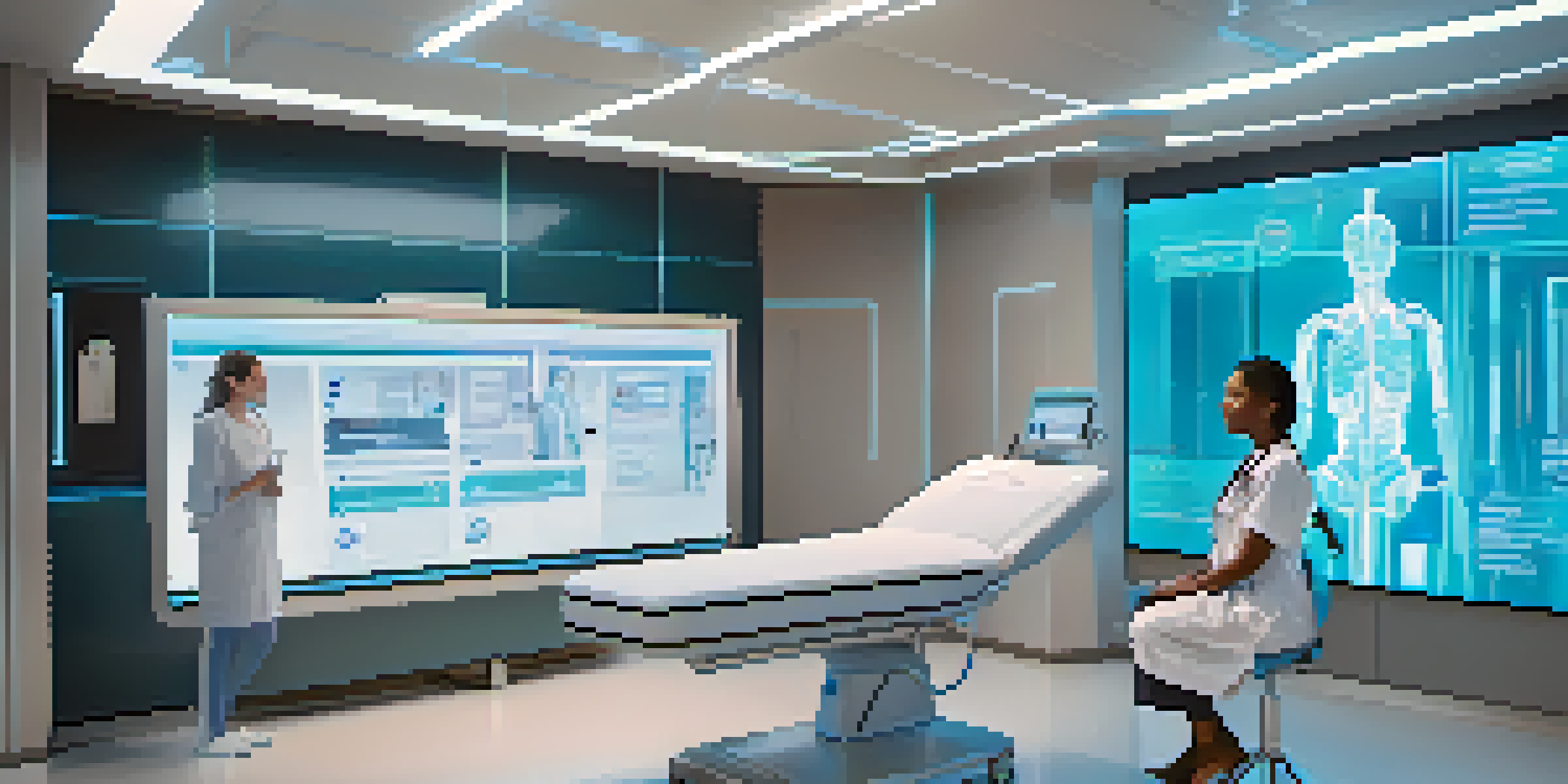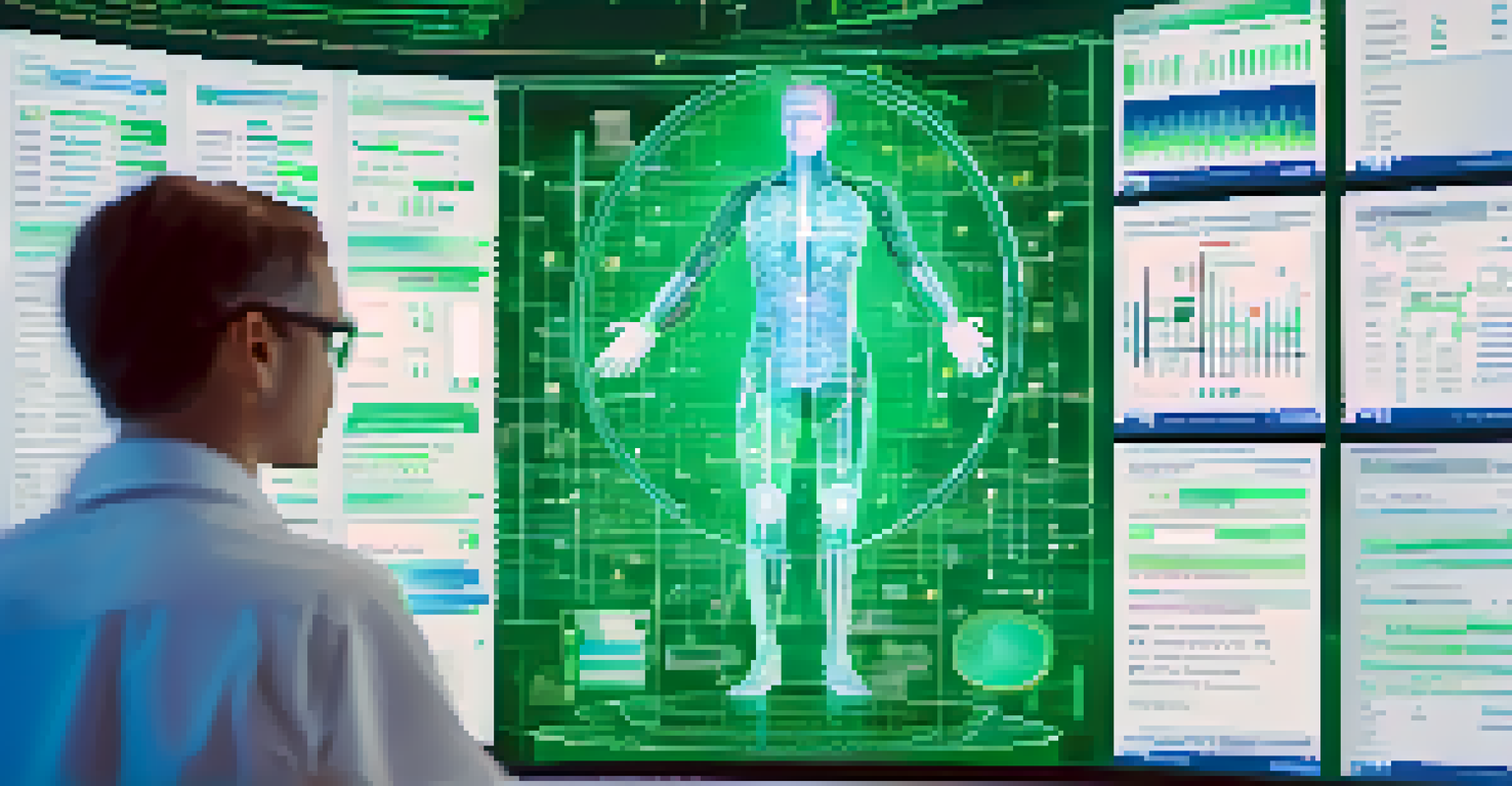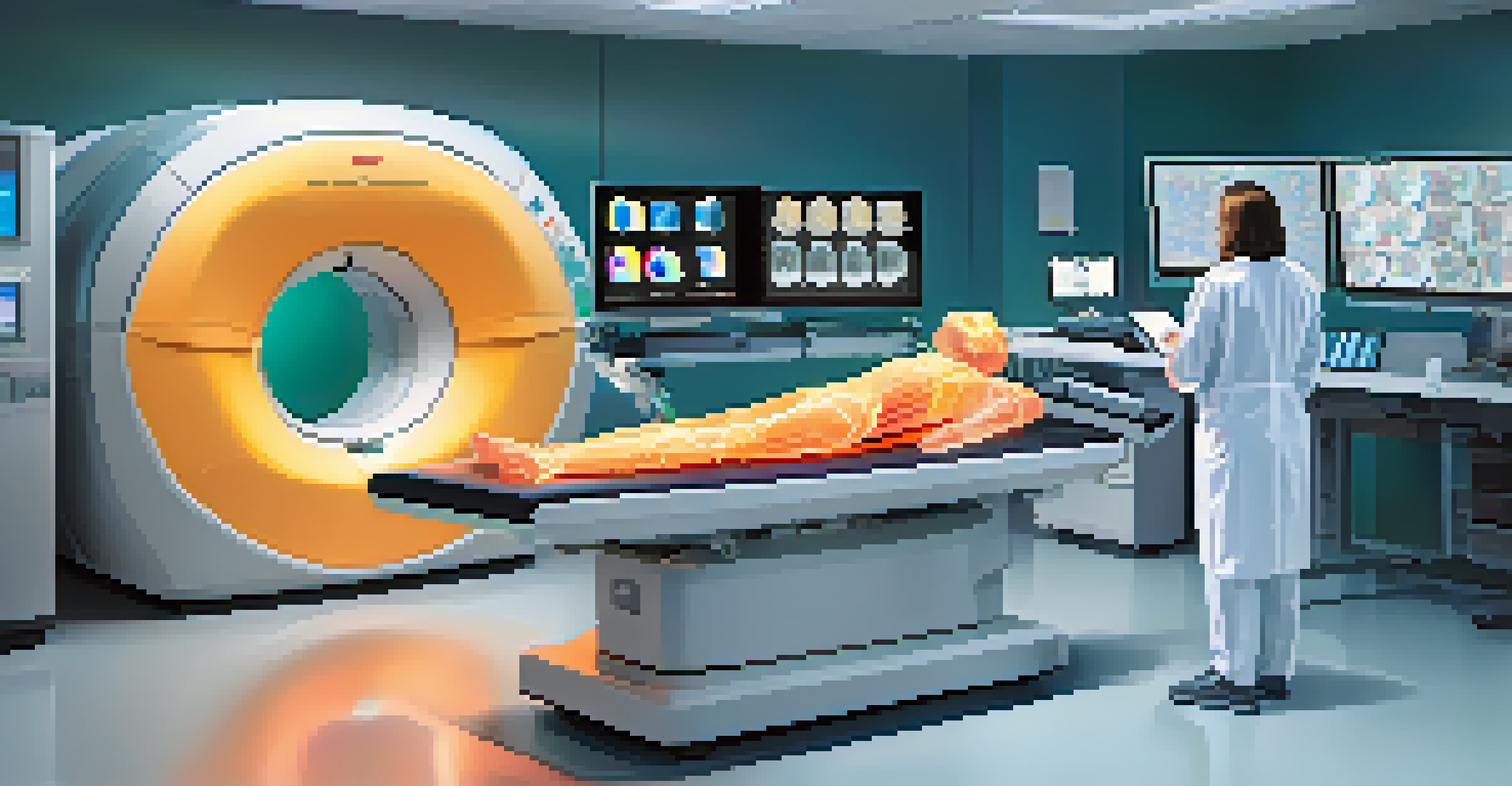Artificial Intelligence in Health Informatics: Current Trends

Understanding AI and Health Informatics
Artificial Intelligence (AI) is revolutionizing various sectors, and health informatics is no exception. At its core, health informatics involves managing health information through technology to improve patient care. When combined with AI, it enables healthcare providers to analyze vast amounts of data efficiently, leading to better decision-making.
The future of healthcare lies in the intersection of AI and human touch.
For example, AI algorithms can sift through electronic health records (EHRs) to identify patterns that human analysts might miss. This insight can help in early disease detection or predicting patient outcomes. Consequently, the synergy between AI and health informatics is paving the way for more personalized healthcare solutions.
As we delve deeper into this topic, we'll explore the latest trends that showcase how AI is reshaping the landscape of health informatics.
AI-Powered Predictive Analytics in Healthcare
One of the standout trends in health informatics is the use of AI-powered predictive analytics. By analyzing historical data, these systems can forecast future health events, which is invaluable in preventive care. For instance, predicting which patients are at risk of developing chronic conditions enables timely interventions.

Hospitals are increasingly adopting these technologies to enhance patient management. For example, AI can analyze patient demographics, previous health records, and lifestyle factors to predict hospital readmission rates. This proactive approach not only improves patient outcomes but also reduces healthcare costs.
AI Enhances Patient Care Efficiency
The integration of AI in health informatics allows for more efficient data analysis, improving decision-making and patient outcomes.
As predictive analytics continues to evolve, it promises to further refine the quality of care delivered in healthcare settings.
Natural Language Processing (NLP) in Medical Records
Natural Language Processing (NLP) is another significant trend driving AI in health informatics. NLP enables computers to understand and process human language, which is essential for analyzing unstructured data in medical records. This technology can extract relevant information from physician notes, lab results, and patient communications.
AI is not a replacement for doctors; it's a tool that can help them make better decisions.
For instance, NLP can help identify patient sentiments, symptoms, and potential diagnoses from clinical notes. By converting this unstructured data into actionable insights, healthcare providers can make more informed decisions. It's like having a personal assistant that can quickly sift through piles of paperwork to find the most critical information.
As NLP technology progresses, its integration into health informatics will likely reduce administrative burdens while enhancing patient care.
AI in Medical Imaging and Diagnostics
AI's capabilities extend significantly into medical imaging and diagnostics, where it enhances the accuracy and speed of image analysis. Machine learning algorithms can detect anomalies in X-rays, MRIs, and CT scans, often with greater precision than human radiologists. This trend is transforming how medical professionals interpret complex images.
For example, AI can be trained to identify early signs of diseases such as cancer, allowing for timely treatment. Some diagnostic tools even provide real-time suggestions to radiologists, improving the overall workflow in medical facilities. It's akin to having a highly trained colleague who assists in spotting potential issues during examinations.
Predictive Analytics Transforms Prevention
AI-powered predictive analytics can forecast health events, enabling timely interventions and reducing hospital readmission rates.
As AI continues to evolve in this area, we can expect more breakthroughs that will significantly improve diagnostic accuracy.
Telemedicine and AI: A Perfect Match
The rise of telemedicine has been accelerated by technological advancements, and AI plays a crucial role in enhancing these remote health services. AI chatbots and virtual assistants are now common in telehealth platforms, helping triage patients and provide instant answers to health-related queries. This trend improves accessibility for patients, especially in rural areas.
Moreover, AI can analyze patient data collected during telemedicine consultations to offer personalized treatment recommendations. For instance, AI can monitor patients' vitals remotely and notify healthcare providers of any concerning changes. This continuous monitoring acts as an extra layer of safety for patients who may not always seek in-person visits.
As telemedicine continues to grow, the integration of AI will likely enhance both patient engagement and health outcomes.
Data Security and Ethical Considerations in AI
With the increasing reliance on AI in health informatics, data security and ethical considerations are paramount. As AI systems process sensitive health information, ensuring the privacy and security of this data is critical. Healthcare providers must implement robust security measures to protect against data breaches and unauthorized access.
Additionally, ethical concerns arise regarding algorithmic bias, where AI systems may inadvertently perpetuate existing inequalities in healthcare. For instance, if an AI model is trained on a non-diverse dataset, it may not perform equally well for all patient demographics. This highlights the importance of developing fair and transparent AI solutions.
NLP Streamlines Medical Data Processing
Natural Language Processing (NLP) helps extract valuable insights from unstructured medical data, enhancing the quality of patient care.
Addressing these issues is essential for building trust in AI technologies within the healthcare sector.
Future Directions of AI in Health Informatics
Looking ahead, the future of AI in health informatics is incredibly promising. As AI technologies continue to mature, we can anticipate even more sophisticated tools that enhance patient care and operational efficiency. Innovations like AI-driven decision support systems could revolutionize the way healthcare professionals approach treatment planning.
Moreover, the fusion of AI with other emerging technologies, such as blockchain, could lead to safer and more transparent health data exchanges. This convergence can ultimately empower patients by giving them more control over their health information. It's an exciting time, as the boundaries of what is possible in health informatics are continually expanding.

As we embrace these advancements, the potential for improved health outcomes and patient experiences is greater than ever.